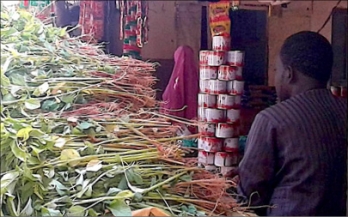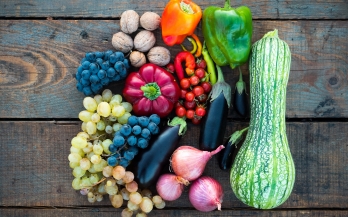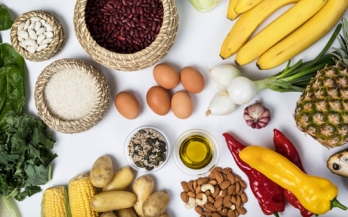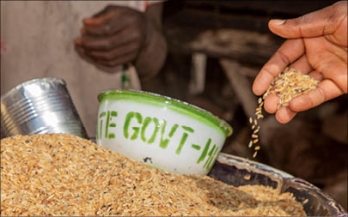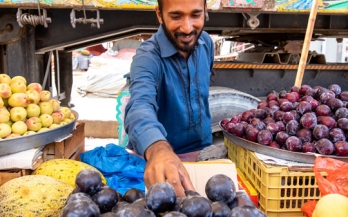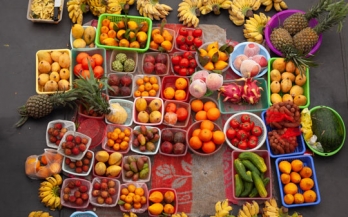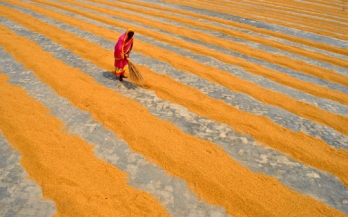The EatSafe program conducted a range of formative research activities to understand the local context in Northwestern Nigeria. Learnings from these activities were then used to develop market-based interventions to increase consumer demand for improved food safety.
Fruits and vegetables are recommended across all dietary guidelines. Despite the nutrition credentials of vegetables, they remain relatively scarce and expensive in many low-income settings, including across many of the countries where GAIN’s main offices are based.
GAIN’s mission and strategy revolve around the core concept of "nutritious and safe foods". In addition, there is a growing consensus that foods should be produced sustainably - i.e., that one should take into account the environmental impact associated with the production of these foods.
Designed to inspire EatSafe team members’ creativity and imagination prior to and during the EatSafe Intervention Sprint, this tool described the features, benefits, and enabling infrastructure of over 100 consumer-first food system innovations using Human Centered Design.
EatSafe reviewed existing normative guidelines that could be used by governments and other enabling organizations to promote safer food in traditional markets.
Understanding urban specific contexts and food system challenges during the pandemic is the first step towards the co-design of policy options. Between December 2020 and April 2021, GAIN conducted a mixed method Rapid Needs Assessment of Machakos and Kiambu (Kenya), Beira and Pemba (Mozambique),) and Rawalpindi and Peshawar (Pakistan).
As the importance of national level information on dietary intakes in low- and middle-income countries is increasingly recognized; reliable methods, tools and guides to support the compilation of quality food and nutrient intake data are needed. In general, guidance on how to adequately prepare for a dietary survey prior to embarking on data collection is scarce.
In January 2021, GAIN published its latest report "Business Accountability for Better Nutrition" listing concrete ways to improve business accountability by using a number of existing reporting tools to assess business impact on nutrition
Food Systems are the people, places, and activities that bring us food. They make food available in diverse ways that influence and shape the choices we make about what to eat, when, and how. They are complicated and constantly changing – comprising a host of moving and interconnected pieces. They support many people’s livelihoods.
High levels of food loss help drive low availability and affordability of nutrient-dense foods such as fresh fruit and vegetables - which, in turn, contribute to poor-quality diets and poor nutrition outcomes in many low- and middle-income countries. Much of this loss occurs at the post-harvest stage, in which women often play a large role, and gender relations shape decisions along agricultural value chains
